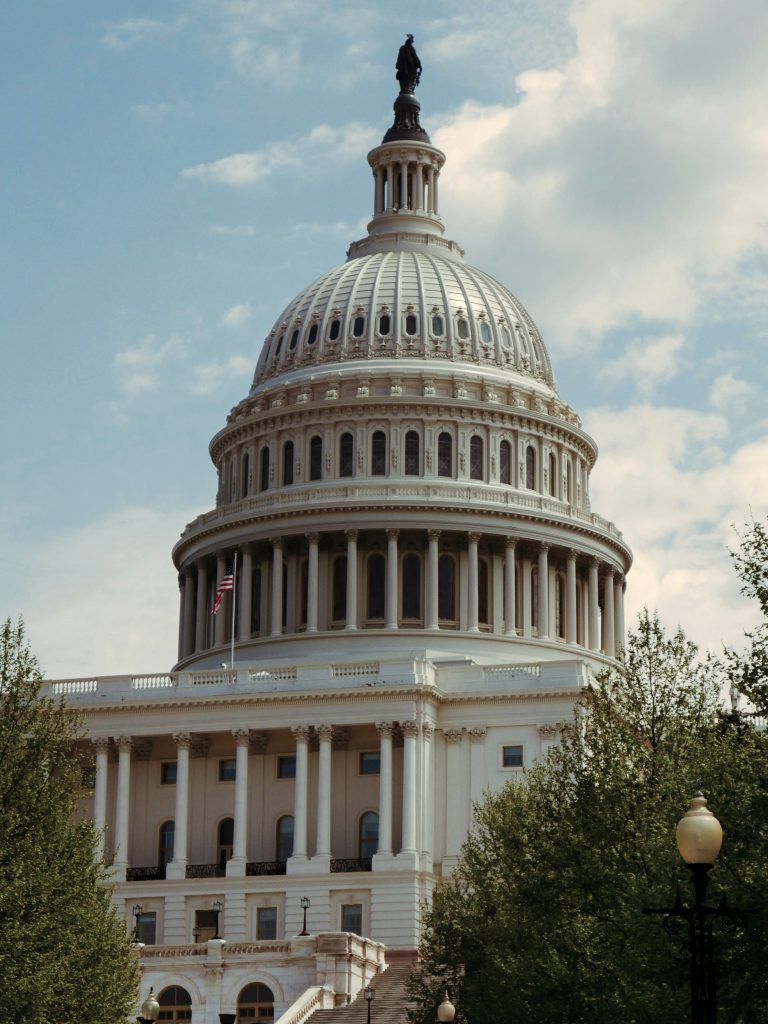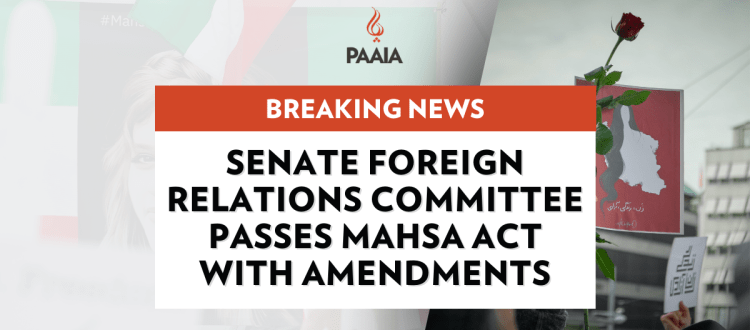Senate Foreign Relations Committee Passes MAHSA Act with Amendments

Today, the Senate Foreign Relations Committee (SFRC) passed the Mahsa Amini Human rights and Security Accountability Act (MAHSA Act) in their markup session with added amendments. The bipartisan legislation, introduced by Senators Marco Rubio (R-FL) and Alex Padilla (D-CA), passed the Committee by voice vote with no objections. PAAIA welcomes the advancement of the legislation but would have preferred retention of the bill’s original language. A separate version of the bipartisan legislation passed the House of Representatives in September 2023 with near unanimity (410 yea votes).
The MAHSA Act (S.2626) would require the Executive Branch to determine sanctions against the Supreme Leader of Iran, the President of Iran, their entities and offices, and their inner circle under existing executive orders 13876, 13553, 13818, and 13224 as well as impose visa and property bans pursuant to section 7021(c) of the Department of State, Foreign Operations, and Related Programs Appropriations Act of 2021. Amidst the struggle of the Iranian people for their liberties against government repression, legislation like this plays a crucial role in supporting their democratic goals.
The Amendments in the SFRC Version
During today’s markup, SFRC Chairman Ben Cardin introduced a Mangers Substitute Amendment to modify the bill’s language that allows the Executive Branch more flexibility in implementing U.S. foreign policy. The amendment maintains the sanction requirements explained above but provides the President with the opportunity to waive sanctions for renewable periods of 180 days if determined that such a waiver is in the interest of national security. Additionally, according to Section 3(a)(1)(A) and (B) individuals and entities can be sanctioned under these executive orders if they meet the legislation’s criteria “on or after” the date of the bill’s enactment. The amendment also includes a 4-year sunset clause.
The Managers Amendment also imposes sanctions on foreign persons who have ordered, directed, or taken steps to carry out violence against U.S. officials or former officials. In addition, the Amendment imposes sanctions on those involved in asymmetric and malicious cyber activity. It also authorizes $15 million for improving and modernizing sanctions implementation.
A second amendment, introduced by Senator Brian Schatz, requires that the Secretaries of State and Treasury submit a report on the impacts of U.S. sanctions on the Iranian regime and the Iranian people.
PAAIA strongly supports the original intent of the MAHSA Act and encourages bipartisan cooperation to resolve the differences between the House and Senate versions of the bill to ensure that the legislation becomes law.
PAAIA’s Support for the MAHSA Act
In January, PAAIA penned a letter urging Senator Cardin and the entire SFRC to take action on the MAHSA Act. The correspondence underscored the critical importance of supporting this pivotal legislation, stressing the necessity to ensure that the Islamic Republic is held responsible for its widespread violations of human rights and its backing of terrorist activities.
Before the SFRC passed the MAHSA Act today, PAAIA had been working with members of Congress to garner bipartisan support for the bill since its reintroduction. We have helped secure dozens of cosponsors and have spoken directly with House and Senate Leadership about the legislation. Thousands of Iranian Americans have also reached out to their elected officials in support. PAAIA remains hopeful that our collective efforts as a community can preserve the legislation’s original intent and become law.

